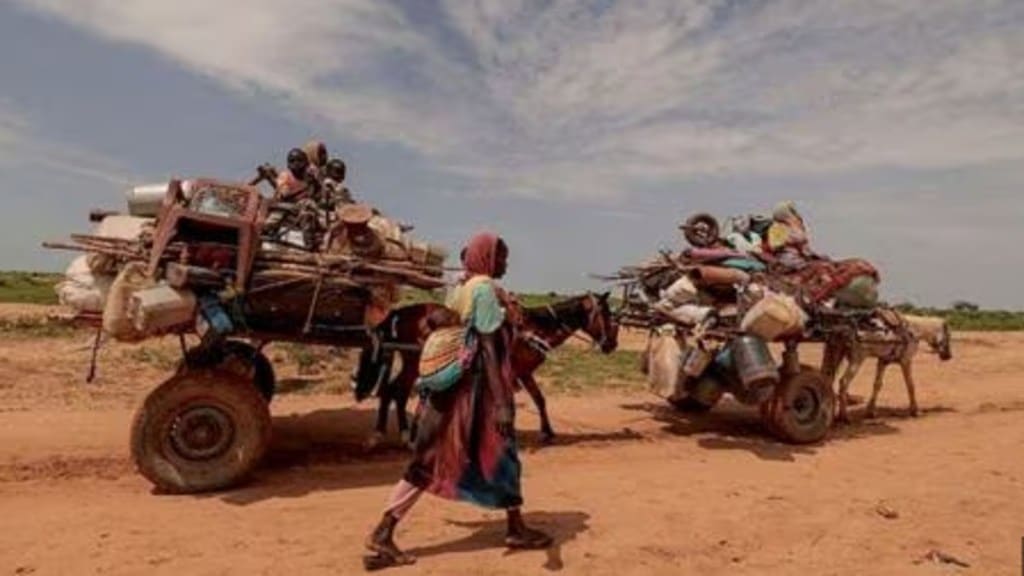As the conflict in Sudan continues, the United Arab Emirates (UAE) has stepped up its humanitarian efforts, reinforcing its long-standing commitment to supporting the Sudanese people. Since 2014, the UAE has provided a remarkable USD 3.5 billion in aid to Sudan, with a significant portion of this aid directed toward addressing the recent crisis that erupted in 2023.
In response to the escalating conflict, the UAE has contributed USD 230 million in aid, which has been critical in alleviating the suffering of those affected. The UAE has coordinated over 159 relief flights, delivering more than 10,000 tonnes of food, medical supplies, and other essential relief materials to the region. This swift and decisive action has provided much-needed assistance to communities struggling with the severe consequences of the conflict.
Recognizing the dire need for medical support, the UAE has established two field hospitals in Chad, a neighboring country that has seen an influx of Sudanese refugees. The Amdjarass Field Hospital has treated 24,741 cases, while the Abéché Field Hospital has provided care to 21,761 individuals. These facilities have been vital in offering medical care to those fleeing the violence in Sudan, ensuring they receive the treatment they need.
The UAE’s commitment extends beyond direct aid efforts. During the International Humanitarian Conference for Sudan and Neighboring Countries held in Paris in April, the UAE pledged over USD 100 million in aid. Additionally, the UAE has contributed USD 70 million to UN humanitarian organizations operating in Sudan, including a direct donation of USD 30 million to support refugees in neighboring countries.
As Sudan continues to grapple with the devastating impact of conflict, the UAE remains steadfast in its support, providing essential humanitarian aid, medical assistance, and international cooperation to help the Sudanese people navigate this challenging period. The UAE’s efforts underscore its role as a key humanitarian player in the region, dedicated to offering relief and hope to those in need.
Understanding the Conflict in Sudan
The conflict in Sudan, which erupted in April 2023, is primarily between two powerful military factions: the Sudanese Armed Forces (SAF) led by General Abdel Fattah al-Burhan, and the Rapid Support Forces (RSF) commanded by General Mohamed Hamdan Dagalo, also known as Hemetti. This internal struggle for power has plunged the country into chaos, exacerbating an already fragile situation following years of political instability.
The roots of this conflict can be traced back to Sudan’s troubled political history. In 2019, a popular uprising led to the ousting of long-time dictator Omar al-Bashir, who had ruled Sudan for three decades. This revolution raised hopes for a democratic transition, but the military, which had supported the uprising, quickly consolidated power. Initially, a civilian-military transitional government was established, but tensions between the military and civilian leaders remained high.
In October 2021, these tensions culminated in a military coup led by General al-Burhan, dissolving the transitional government and plunging the country into further unrest. While the coup was met with widespread protests and international condemnation, the military retained control. However, divisions within the military soon became apparent, particularly between the SAF and the RSF, which had originally been a paramilitary group before being integrated into the Sudanese military structure.
The conflict between the SAF and the RSF intensified over disagreements about how the RSF should be integrated into the regular army and who would ultimately control the military and, by extension, the country. The situation escalated into open warfare in April 2023, with both sides vying for control over strategic locations in the capital, Khartoum, and other key regions.
The fighting has resulted in a severe humanitarian crisis, with thousands of civilians killed, millions displaced, and widespread destruction of infrastructure. Essential services have been disrupted, leading to shortages of food, water, and medical supplies. The conflict has also spilled over into neighboring countries, exacerbating regional instability.
Efforts to negotiate a ceasefire have been unsuccessful, and the situation remains dire. The international community, including the United Nations and various humanitarian organizations, has called for an end to the violence and increased humanitarian aid to support the millions of Sudanese affected by the conflict. However, the path to peace remains uncertain as both factions continue to fight for dominance, leaving the future of Sudan in a precarious state.

